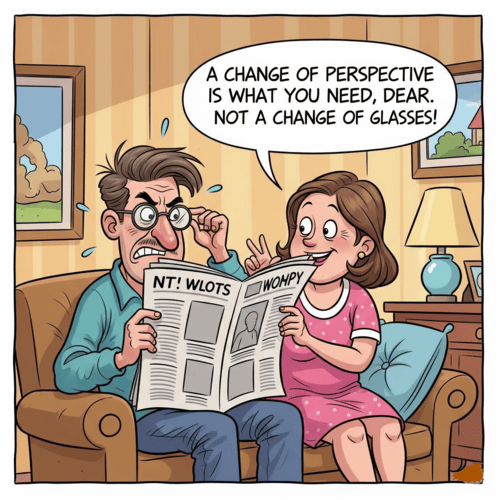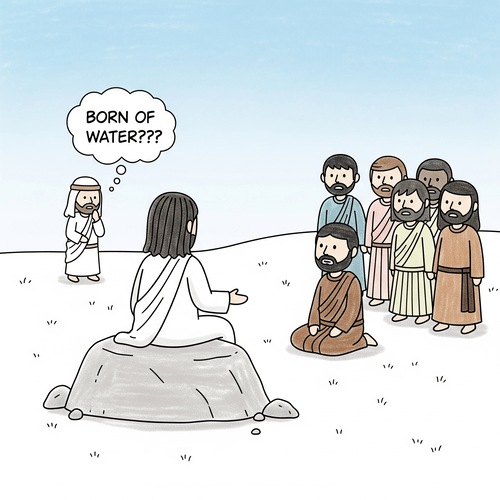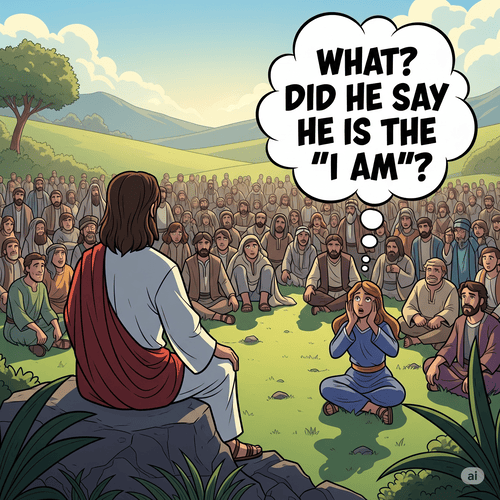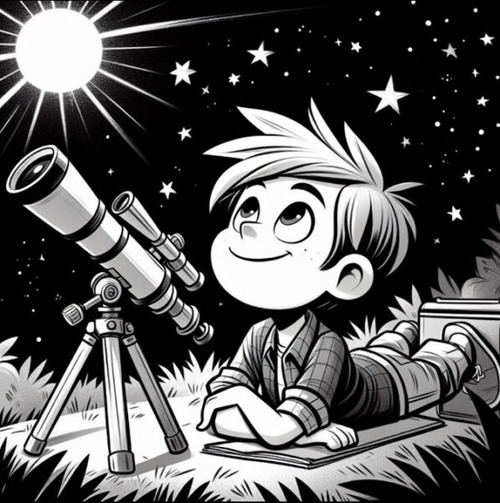The Teleological Argument: Unveiling Design in a Universe of Wonder
Unveiling Design in a Universe of Wonder
Remember those nights when you lay gazing at the intricate spirals of a galaxy or marvelling at the symphony of life on Earth? The teleological argument for God’s existence invites us to consider these wonders as evidence of a grand design. This powerful argument, also known as the “argument from design,” proposes the order and complexity of the universe don’t exist by chance, but rather point to an intelligent Creator.
A Universe Screaming Design:
Imagine a masterfully crafted watch—its intricate gears and precise timing bespeak a watchmaker. The teleological argument suggests the universe is like this watch, showcasing a level of complexity that screams “design.” Just as a watch wouldn’t exist by accident, the universe’s fine-tuned physical laws, from the perfect balance of forces for star formation to the delicate conditions needed for life, all hint at an underlying intelligence.
Beyond Chance: The Delicate Balance of Existence
Consider the Earth—its distance from the sun, its size, and its unique atmosphere—all perfectly calibrated for life. Minor alterations in these factors would render our planet lifeless. This “fine-tuning” argument highlights how improbable life is without a guiding hand.
The “unreasonable effectiveness of mathematics” in describing the universe further strengthens this point. Why do these abstract concepts perfectly align with how the universe works? This harmony suggests a pre-existing plan, potentially orchestrated by a brilliant designer.
The Mystery of Life: Irreducible Complexity
Think about the human body—a marvel of interconnected systems. The teleological argument finds support in the concept of “irreducible complexity.” Certain biological systems, like the bacterial flagellum, a microscopic motor essential for bacterial movement, are so intricate that removing even a single component would render them useless. This complexity challenges gradual evolutionary explanations, suggesting the need for an intelligent designer to assemble such systems from the start.
Beyond the Physical: The Human Experience
The human experience transcends the physical. Our capacity for consciousness, morality, and abstract thought presents a puzzle for purely materialistic explanations. While advancements like fMRI technology are helping us understand the brain better, the essence of consciousness remains a mystery. This gap in purely scientific explanations leaves room for the possibility of a higher intelligence behind human design, aligning with the teleological argument.
A Universe Whispering Purpose:
The teleological argument invites us to view the universe not as a random accident but as a meticulously crafted design. Science continues to unravel the universe’s secrets, but the teleological argument posits that the observed order and complexity are best explained by the existence of an intelligent designer. This argument serves as a bridge, allowing us to integrate scientific observations with philosophical insights, leading us to contemplate the profound design woven into the very fabric of the cosmos.
Ready to Delve Deeper?
The teleological argument sparks curiosity and opens doors for further exploration. If you’d like to learn more about this fascinating topic or other apologetics arguments, feel free to browse our website or contact us directly!
Related Reads:
- The Ontological Argument: Can We ‘Logic’ Our Way to God?
- Aquinas’ Quinque Viae: Timeless Arguments for the Existence of God
- The Universal Moral Oughts: Signposts to the Divine
- The Kalam Cosmological Argument: A Quest for Cosmic Beginnings
- The Fine-Tuning Argument: Can Orchestras Compose and Conduct Themselves?
Editor's Pick

Rethinking Sickle Cell Anaemia: A Case for Intelligent Design
Sickle cell anaemia presents what many consider evolution’s strongest card—a genetic condition that causes suffering yet provides protection against malaria. [...]

‘Bad’ Design: Flaw in Nature Or Flaw in Our Perspective?
When the Eiffel Tower was first proposed, critics called it a monstrous eyesore that would ruin Paris forever. Today, it’s [...]

The Problem of Divine Absence: How Do Believers Cope?
WHEN GOD SEEMS FAR: THE GREAT DISCONNECT Ever wondered why God seemed so close to Joseph in his Egyptian prison, [...]

Is ‘Gay Christian’ a Biblically Acceptable Identity to Have?
THE QUESTION OF IDENTITY IN BIBLICAL PERSPECTIVE The term “gay Christian” has become increasingly common in contemporary religious discourse, representing [...]

What Does ‘Born of Water’ in John 3:5 Mean?
THE REFORMED VIEW VS OTHER INTERPRETATIONS ”Jesus answered, ‘Truly, truly, I say to you, unless one is born of water [...]

The Lordship Salvation Controversy: What’s It All About?
Can someone be truly saved without making Jesus Christ their Lord? The question sits at the heart of one of [...]

1 John 5:6: How Do Water and Blood Reveal Jesus’ True Identity?
"This is he who came by water and blood—Jesus Christ; not by the water only but by the water and [...]

Is Jesus Yahweh? Answering Unitarian Objections
The question of whether Jesus Christ is truly God has divided Christians for centuries. While orthodox Christianity has consistently affirmed [...]

Matthew 3:11: What Is the Baptism of Fire?
When John the Baptist declared, “He will baptise you with the Holy Spirit and fire” (Matthew 3:11), his words carried [...]

From Rock to Stumbling Block: Why Jesus Called Peter Satan
In the span of just six verses (Matthew 16:13-28), Peter goes from receiving the highest praise from Jesus to getting [...]
SUPPORT US:
Feel the Holy Spirit's gentle nudge to partner with us?
Donate Online:
Account Name: TRUTHS TO DIE FOR FOUNDATION
Account Number: 10243565459
Bank IFSC: IDFB0043391
Bank Name: IDFC FIRST BANK






